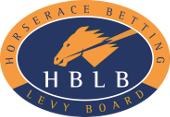Tuesday 6th July 2010
Betting Exchanges Consultation Launched by Levy Board
The Horserace Betting Levy Board has begun an extensive consultation process on various questions relating to the issue of whether certain users of betting exchanges should be regarded as being leviable bookmakers for the purpose of the Levy.
The consultation document, which has been distributed to interested parties and is published on HBLB’s website, recognises that betting exchanges were not in existence or even envisaged when the main legislation concerning the Levy (in particular the Betting, Gaming and Lotteries Act 1963) was passed.
The document reflects that there have been no amendments made to this legislation to take account of betting exchanges; however, by contrast, the legislation dealing with taxation and licensing of bookmaking activities has been amended to take account of betting exchanges and their activities. Currently no users of betting exchanges pay Levy, except for licensed bookmakers in respect of their use of betting exchanges in the course of their bookmaking business.
To date, HBLB, and the betting and racing industries, have worked on the basis that betting exchanges themselves fall within the definition of "bookmaker" under section 55 of the 1963 Act, and so are liable to pay the Levy. Levy is calculated as a percentage of the betting exchange's gross profits (i.e. the profits earned by the commissions charged to users of betting exchanges). Further, no users of betting exchanges have paid the Levy, except for licensed bookmakers in respect of their use of betting exchanges in the course of their bookmaking business (essentially to hedge their risk).
The consultation will close on 20th September 2010. The document sets out how responses can be made.
HBLB Chairman Paul Lee said: “The Board has agreed that there are a number of issues arising from the use of betting exchanges which should be the subject of further investigation. It has taken the view that the best way of addressing these is through this consultation process. We welcome responses from all those with an informed viewpoint on the areas raised in the consultation document, as well as on any other relevant matters.”
The consultation document, which has been distributed to interested parties and is published on HBLB’s website, recognises that betting exchanges were not in existence or even envisaged when the main legislation concerning the Levy (in particular the Betting, Gaming and Lotteries Act 1963) was passed.
The document reflects that there have been no amendments made to this legislation to take account of betting exchanges; however, by contrast, the legislation dealing with taxation and licensing of bookmaking activities has been amended to take account of betting exchanges and their activities. Currently no users of betting exchanges pay Levy, except for licensed bookmakers in respect of their use of betting exchanges in the course of their bookmaking business.
To date, HBLB, and the betting and racing industries, have worked on the basis that betting exchanges themselves fall within the definition of "bookmaker" under section 55 of the 1963 Act, and so are liable to pay the Levy. Levy is calculated as a percentage of the betting exchange's gross profits (i.e. the profits earned by the commissions charged to users of betting exchanges). Further, no users of betting exchanges have paid the Levy, except for licensed bookmakers in respect of their use of betting exchanges in the course of their bookmaking business (essentially to hedge their risk).
The consultation will close on 20th September 2010. The document sets out how responses can be made.
HBLB Chairman Paul Lee said: “The Board has agreed that there are a number of issues arising from the use of betting exchanges which should be the subject of further investigation. It has taken the view that the best way of addressing these is through this consultation process. We welcome responses from all those with an informed viewpoint on the areas raised in the consultation document, as well as on any other relevant matters.”
